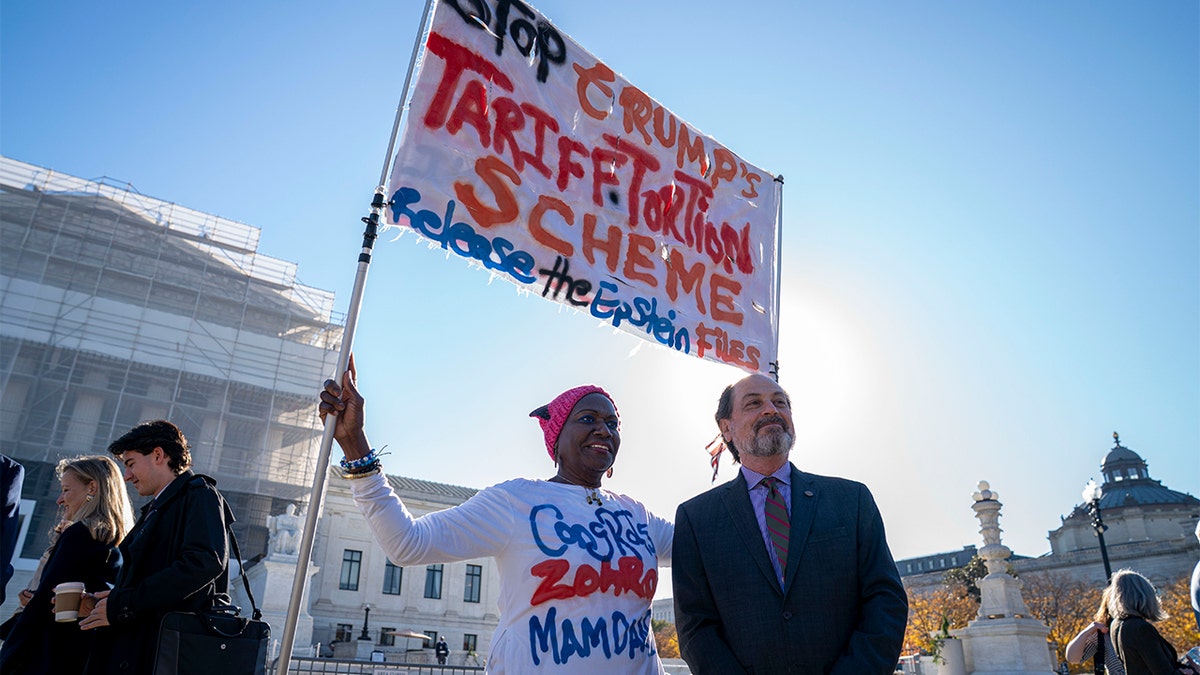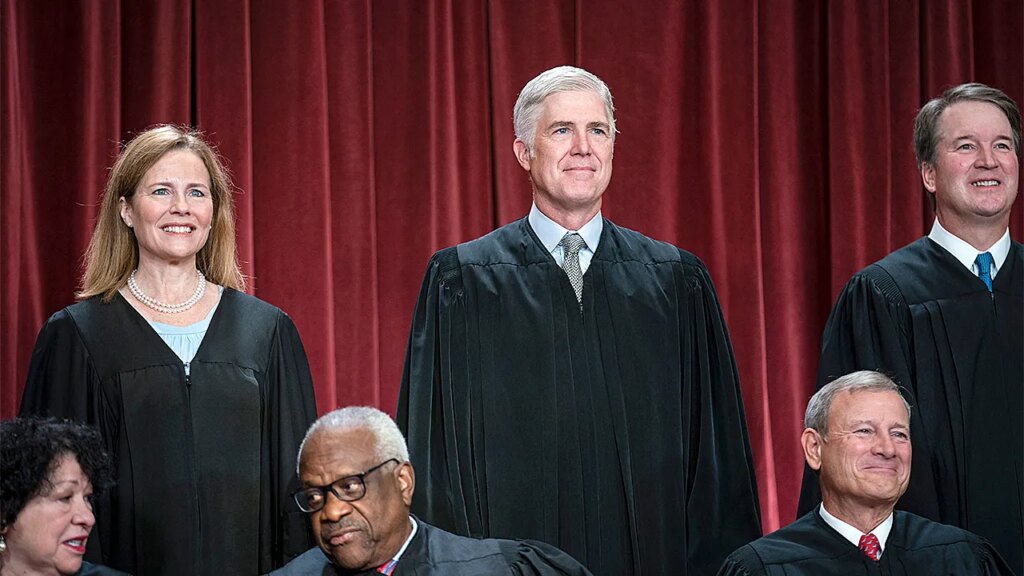NEWYou can now listen to Fox News articles!
The Supreme Court on Wednesday heard oral arguments in a case centered on President Donald Trump’s use of an emergency law to enact his sweeping “Liberation Day” tariffs, and even Trump-appointed justices appeared skeptical of the administration’s arguments.
Several questions from conservative justices, particularly Neil Gorsuch and Amy Coney Barrett, suggested uncertainty about allowing Trump to use the International Emergency Economic Powers Act (IEEPA) to enact his steep 10% tariffs on most imports. A ruling against the administration would deliver a major blow to Trump’s signature economic policy.
The IEEPA law gives the president broad economic powers in the event of a national emergency tied to foreign threats, and Trump declared the trade deficit such an emergency to impose tariffs via executive order earlier this year. But the law does not mention the word “tariffs” or “taxes” — a major sticking point in both this week’s oral arguments and the lower court’s earlier review of the case.
Most of the justices’ questions focused on a single phrase in the law — the power to “regulate importation” during a national emergency — and whether that phrase grants Trump the authority he claims. Several justices seemed wary of a reading that could hand Congress’ Article I power over revenue and taxation to the executive branch.
SUPREME COURT TO WEIGH TRUMP TARIFF POWERS IN BLOCKBUSTER CASE
This included Trump’s appointees, who appeared to struggle with separation-of-powers issues that could vastly expand presidential authority — not only for Trump but for his successors as well.
Barrett, in particular, pressed U.S. Solicitor General D. John Sauer on this, asking: “Can you point to any other place in the code or any other time in history where that phrase — together with ‘regulate importation’ — has been used to confer tariff-imposing authority?”
Gorsuch later asked Sauer about his “theory of the Constitution” and “major questions doctrine,” indicating concern about separation-of-powers issues and granting too much power to the executive.
TRUMP ASKS SUPREME COURT FOR URGENT RULING ON TARIFF POWERS AS ‘STAKES COULD NOT BE HIGHER’

“What would prohibit Congress from abdicating all responsibility to regulate foreign commerce or declare war to the president?” Gorsuch asked Sauer.
Sauer repeatedly argued that a “regulatory tariff” is not a tax and that the power to raise revenue was “only incidental,” even as the White House has celebrated that Trump’s tariff revenues exceeded $100 billion this year.
Challengers, including private entities and Democratic-led states, argue that Congress must clearly state when it wants presidents to have the authority to implement tariffs. In court filings, they pointed to laws such as Section 232 (national security trade measures) and Section 301 (retaliation for unfair trade) as times when Congress expressly gave tariff powers to the president. By contrast, IEEPA has been used for embargoes, asset freezes and licensing but never across-the-board tariffs. The last time the Court permitted a delegation of tariff powers to the president, in Algonquin SNG v. FEA (1976), it relied on Section 232 because Congress put that authority plainly in the statute. Challengers say there is no comparable language in IEEPA.
The liberal justices on the Court signaled that without clear words from Congress, IEEPA cannot provide Trump with tariff authority. After a previous Supreme Court decision in Loper Bright v. Raimondo (2024), courts no longer give federal agencies the benefit of the doubt when interpreting vague laws. And under the “major questions” doctrine referred to by Gorsuch and other justices, large, economy-wide actions like Trump’s tariffs need a plain, specific grant from Congress.
JONATHAN TURLEY: SUPREME COURT RULING ON TRUMP TARIFFS COMES DOWN TO A NUMBERS GAME
Court watchers and legal experts said after arguments that a Trump administration win could be more difficult than expected, though each cautioned it is hard to draw conclusions from roughly two hours of oral arguments — a fraction of the total time justices spend reviewing a case.
Jonathan Turley, a law professor and Fox News contributor, said in a blog post that the justices “were skeptical and uncomfortable with the claim of authority, and the odds still favored the challengers.”
“However, there is a real chance of a fractured decision that could still produce an effective win for the administration,” Turley added.
SUPREME COURT PREPARES TO CONFRONT MONUMENTAL CASE OVER TRUMP EXECUTIVE POWER AND TARIFF AUTHORITY
Jack Goldsmith, a former assistant attorney general in the George W. Bush administration, did not go quite as far.
“I think that it is fair to say that the justices the government needs to win the case — Chief Justice John Roberts and Justices Neil Gorsuch and Amy Coney Barrett — asked the government very hard questions that did express skepticism about important elements of its case,” Goldsmith said in a New York Times interview.
“But they also asked the other side very hard questions. I do not think any of these three tipped off their hands definitively. I did not find anything terribly surprising in the questions.”
CLICK HERE TO DOWNLOAD THE FOX NEWS APP
Brent Skorup, a legal fellow at the CATO Institute, told Fox News Digital in an emailed statement that members of the Court seemed uncomfortable with expanding presidential power over tariffs.
“Most justices appeared attentive to the risks of deferring to a president’s interpretation of an ambiguous statute and the executive branch ‘discovering’ new powers in old statutes,” Skorup said.
“The justices were skeptical and uncomfortable with the claim of authority, and the odds still favored the challengers. However, there is a real chance of a fractured decision that could still produce an effective win for the administration.”
The case is Learning Resources, Inc. v. Trump (consolidated with Trump v. V.O.S. Selections). A ruling is expected by late June.
Read the full article here

